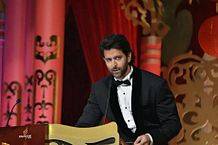Another film met the fate of being brought before the court in the 11th hour for plagiarism. The film Mohenjo Daro, directed by Ashutosh Gowarikar is scheduled for release on 12th August 2016. The movie was brought before the Bombay High Court with a claim that it was a product of plagiarism. But the film triumphed its first ever legal battle.
The Plaintiff, Mr. Akshayaditya Harishchandra Lama (“Lama”) claimed that the 1st Defendant, Mr. Ashutosh Gowarikar directed film Mohenjo Daro infringed his copyright in the work titled “Mohenjo Daro (The Story)” and the Plaintiff’s copyright in the title Mohenjo Daro.
According to the plaint, the Plaintiff as a student in Gwalior in 1995 at National School of Drama had come up with the idea of writing a fictional account based on the Indus Valley Civilization. He decided to call this Mohenjo Daro.He then wrote a love story that he says is based on his personal life experience, i.e., about the life and marriage of his own parents: a story about conflicts in cultures, love, communities and ideas. All this is said to have used Mohenjo Daro as its setting. A few years later, in 1997, the Plaintiff claims he moved to Mumbai to work in the film and television industry, where he claims to have narrated several scripts to people whom he met. One of these was his “script” of MohenjoDaro. The Plaintiff further claims that in 2002 he narrated his “script” of Mohenjo Daro to Mr. Saluja and asked him to set up a meeting with Mr. Gowarikar. He says that at the end of 2002, Mr. Saluja briefed Mr. Gowarikar on Plaintiff’s “script” and Mr. Gowarikar expressed an interest in reading the whole of it. Plaintiff therefore further claims that in early 2003 the plaintiff sent his handwritten script titled Mohenjo Daro to Defendant No. 1 (Mr. AshutoshGowarikar) through Mr. Jaswinder Ballu Saluja, and after retaining the entire script for about four days Defendant No. 1 returned it through Mr. Jaswinder (Ballu) Saluja stating that since he has directed a period film Lagan, he did not wish to make another period film immediately.
Plaintiff further claimed that in August 2010, he learnt that Mr. Gowarikar was working on a script that the Plaintiff suspected was close to his own ‘work’. He emailed Mr. Gowarikar on 12th August, 2010 and received no response from the first defendant. The Plaintiff then made several attempts to meet Mr. Gowarikar. These attempts were also unsuccessful.
The Defendant on the other hand denied all the allegations of the Plaintiff and placed before the court distinguished evidences to prove his case. The evidences included various research materials, meeting with archaeological experts, excavators, scientists and scholars which eventually led to the development and registration of storyline and a script by Mr. Gowarikar on 23rd March 2012 and 27th March 2012.
The court after carefully considering the Plaintiff’s and Defendant’s work held that the work of the Defendant is completely different, distinct and dissimilar. There was no similarity in either of them or the storyline thereof, except the fact that they are set in Mohenjo Daro ; a city in the Indus Valley. Therefore the Court held that Plaintiff has thus, misconducted himself; resorted to fraud; and the suit is nothing but an abuse of process of the Hon’ble Court. The Court further held that the original work of which infringement is alleged must be shown to have existed and to have been known. In this case, the 1995 document is unpublished, so the question of it being in public knowledge is ruled out. The Plaintiff must show with precision and cogent evidence the existence of knowledge on the part of the Defendants of that particular work. The court further noted that what the Plaintiff does have is a 2010 or 2012 play (not fully disclosed, only three pages are shown as noted earlier) which is said to have been based on the script of 2010 and is registered with the FWA. This script is called Samrajya, not Mohenjo Daro, and even in the Plaint no attempt is made to show any similarity between this document and the film. Therefore, the court held that the balance of convenience and irretrievable prejudice favours the Defendants and dismissed the Notice of Motion with costs quantified at Rs. 1,50,000/- to be paid by the Plaintiff to Naam Foundation within four weeks from the date of the order.
Source : 1
Authored by Bhuvana S Babu
Image Source/ Attribution here, Governed BY Creative Commons License CC BY-SA 3.0



